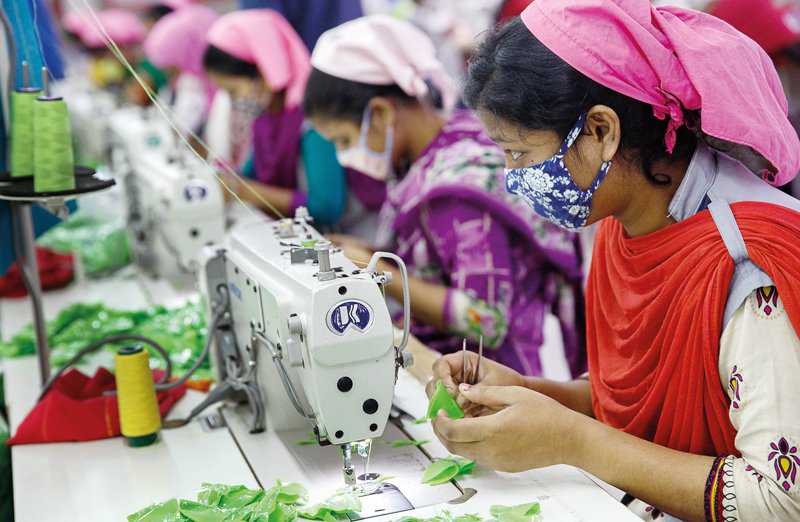Closer to our shores

In a report published in October 2018, by US-based consultancy firm McKinsey and Co (in conjunction with the RWTH of Aachen University) the trend for retailers and brands in the US and EU to develop products closer to home was analyzed at length.
The report highlights the need for retailers and brands to react faster to market trends with reduced lead-times, focusing on sustainability and the support of a circular economy within the apparel sector. 79% of respondents to the report believe that, nearshoring will be higher, or somewhat, likely by 2025, with figures of 74% and 61% for the US and EU respectively, being the forecast percentage of nearshore garment production in the same year.
The report paints a challenging picture for the Bangladesh RMG industry going forward, but what are the ramifications of these changes in buying habits and how does Bangladesh respond?
First, we should consider the advantages that nearshoring offers our customers and changes in the overall retail environment that contribute to the appeal of the adoption of such a sourcing strategy.
For more than 20 years, the driving factor for brands to develop production in Asia was the cost advantage. Today, the lowest garment price is no longer the deciding factor in the success of a product at retail. Brands that react the fastest to trends in the market are those destined to succeed.
The traditional model of two seasons a year was abandoned many years ago, but now consumers are expecting weekly refreshment of in-store product to keep interest and brands now realize that falling sales in a full-price product on the shop floor substantially erodes any margin gained in the purchase of the product at the lowest price.
Brands and retailers are facing the reality that the traditional appeal that they could exert upon end consumers through the promotion of product has changed. Today a “must follow” individual on social media has more influence than any expensive advertising campaign and, given that these influencers are largely unsponsored individuals wearing their own style, companies have to react to consumer demand more quickly than previously.
Our Western customers are facing a seismic change in the purchasing habits of their consumers. The “brick and mortar” retail model of yesteryear is now viewed as archaic by the younger consumer, many of whom shop online and respond to the rise of online retail companies favourably, with increasing percentages of online purchases evident in the US and the EU.
We are fully aware of the rise in labour costs, but we are not alone.
Labour costs are generally increasing globally, but nearshore competition is counter-acting that through embracing technological advances in garment production, becoming less reliant on manpower and concentrating more on automated systems in garment production. The end result being that nearshore productsare gaining in price competitiveness when compared to its Asian-sourced counterpart.
Nearshore manufacturing offers the buyer both a quick turnaround of production with the added advantage of being “closer to home” with transportation times (including any necessary customs procedures) being counted in days rather than weeks -- this alleviates logistical headaches.
It is undeniable that Western buyers have a higher regard for the expertise available, at nearshore resource facilities. In particular, this is the case with Europe where buyers can converse easily with vendors, and know that they will understand the particular item that they are looking to develop.
In addition, buyers feel more comfortable working closer to home, knowing that they can travel far more easily to nearshore destinations, spending less time and less of their budget on travel.
All of the above appears to be a daunting situation for all of us involved within the Bangladesh RMG industry to contend with.
However, as a nation there is one thing we relish, and that is a challenge. There are a number of things that we, as an industry, can embrace to counteract these challenging times.
Source: https://www.dhakatribune.com
Tags :
Previous Story
- Made in Bangladesh toys all over Europe and...
- Bangla parliament passes bill to boost garment sector
- Basis calls for women’s participation to increase in...
- Sustainable pricing is crucial for our apparel industry
- Nigerian investors invited to invest in Bangladesh
- Minimum wage proposed for RMG workers rejected
- Germany turning into Bangladesh's leading export destination
- Workers Welfare Association to be formed in EPZs:...